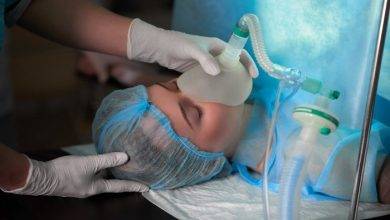
What Does a Full Mouth Reconstruction Consist Of?
Full mouth reconstruction is a comprehensive dental treatment approach designed to restore the function, health, and appearance of your entire mouth. This blog post will explore the various components and procedures involved in a full mouth reconstruction, helping you understand what to expect and how it can benefit your oral health.
What is a Full Mouth Reconstruction?
Full mouth reconstruction, sometimes known as full mouth rehabilitation, is not a one-size-fits-all solution. It is a highly individualized treatment plan that addresses multiple dental issues simultaneously. This procedure is ideal for patients with extensive dental problems that affect most or all of their teeth.
Who Needs a Full Mouth Reconstruction?
This procedure is typically recommended for individuals who have:
- Lost several teeth due to decay or trauma
- Severely worn teeth due to long-term acid erosion or teeth grinding
- Chronic jaw pain, clicking, or popping due to Temporomandibular Joint Disorder (TMJ)
- Dental issues that affect their overall health
Components of Full Mouth Reconstruction
One may need a full mouth restoration for a mountain of reasons. Below are a few of the common reasons why someone would consider getting a full mouth restoration:
Dental Implants
Dental implants are a cornerstone of many full mouth reconstructions. They provide a stable and durable foundation for replacement teeth, offering both functional and aesthetic benefits.
Crowns, Bridges, and Veneers
These restorations are used to repair and enhance the appearance of damaged or decayed teeth. They also restore the functionality of your bite.
Orthodontics
In some cases, orthodontic treatments like braces or Invisalign may be necessary to correct misalignments before other reconstructive work.
Periodontal Treatments
Gum health is crucial for a successful full mouth reconstruction. Periodontal treatments can include scaling and root planing, gum grafting, or laser therapy to treat gum disease and build a healthy foundation for other treatments.
Endodontic Treatments
Root canal therapy may be required to save teeth that have significant decay or infection in the pulp.
TMJ Treatments
Addressing issues with the temporomandibular joint is essential for ensuring that your full mouth reconstruction not only looks good but also functions properly without pain.
The Process of Full Mouth Reconstruction
- Consultation and Evaluation: The first step is a thorough examination, including X-rays, impressions, and possibly 3D imaging. This allows your dentist to create a detailed treatment plan.
- Preparatory Treatments: Some patients may require treatments like tooth extraction or periodontal therapy before reconstruction begins.
- Phased Approach: Full mouth reconstruction is typically completed in phases, spread out over several months or even years, depending on the complexity.
- Ongoing Adjustments and Follow-ups: Regular visits are necessary to make adjustments and monitor the progress of the reconstruction.
Recovery and Aftercare
Recovery times vary based on the specific procedures involved. Your dental team will provide detailed aftercare instructions to ensure a smooth healing process. Good oral hygiene practices and regular dental visits are crucial for maintaining the results of your full mouth reconstruction.
Conclusion
Full mouth reconstruction is a life-changing journey that can significantly improve not only your oral health but also your overall quality of life. With the right dental team and a personalized treatment plan, you can achieve a healthy, functional, and beautiful smile.
FAQs on Full Mouth Reconstruction
Q: Is full mouth reconstruction painful?
A: Modern dental techniques and anesthesia make the procedures involved in full mouth reconstruction relatively comfortable. Your dentist will work with you to manage any discomfort.
Q: How long does full mouth reconstruction take?
A: The duration varies depending on the extent of work needed and the healing process. It can range from several months to a few years.
Q: Will my insurance cover full mouth reconstruction?
A: Coverage varies by insurance provider and plan. It’s important to discuss with your insurance company and dental office about what portions of your treatment may be covered.
Q: Can full mouth reconstruction improve my overall health?
A: Yes, by addressing dental issues, you can improve your nutrition, alleviate pain, and enhance your overall well-being.




